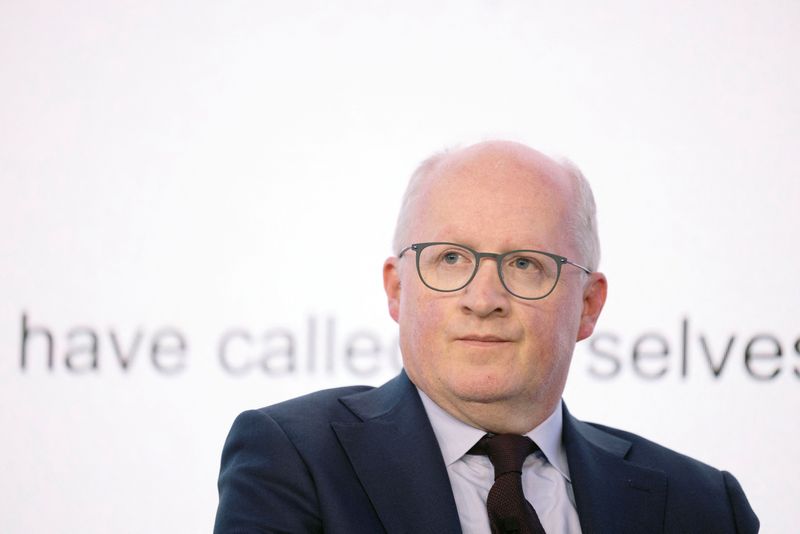(Reuters) - The European Central Bank should make future monetary policy decisions based on upcoming risk rather than the latest economic data, ECB chief economist Philip Lane told the Financial Times in an interview published on Monday.
"Once ... the disinflation process (is) completed, then I think monetary policy needs to be essentially forward-looking, and to be scanning the horizon for what are the new shocks that might lead to less or more inflation pressure," Lane told the FT in a podcast interview recorded before Eurostat data was published on Nov. 29.
Lane told the FT that while the overall inflation rate had fallen close to the ECB’s target of 2%, there was "a little bit of distance to go" and services inflation needed to slow down further.
The Eurostat data showed that euro zone inflation accelerated in November to 2.3%, more than October's 2.0% but in line with market expectations and adding to the case for a more cautious interest rate cut next month.

"At some point, we will make the transition from having been driven by (the) very important disinflation challenge to the new challenge of keeping inflation (at) 2% on a sustainable basis," Lane added.
The ECB has cut rates three times this year, with investors betting on a steady stream of rate cuts and policy easing at every meeting at least through next June.

